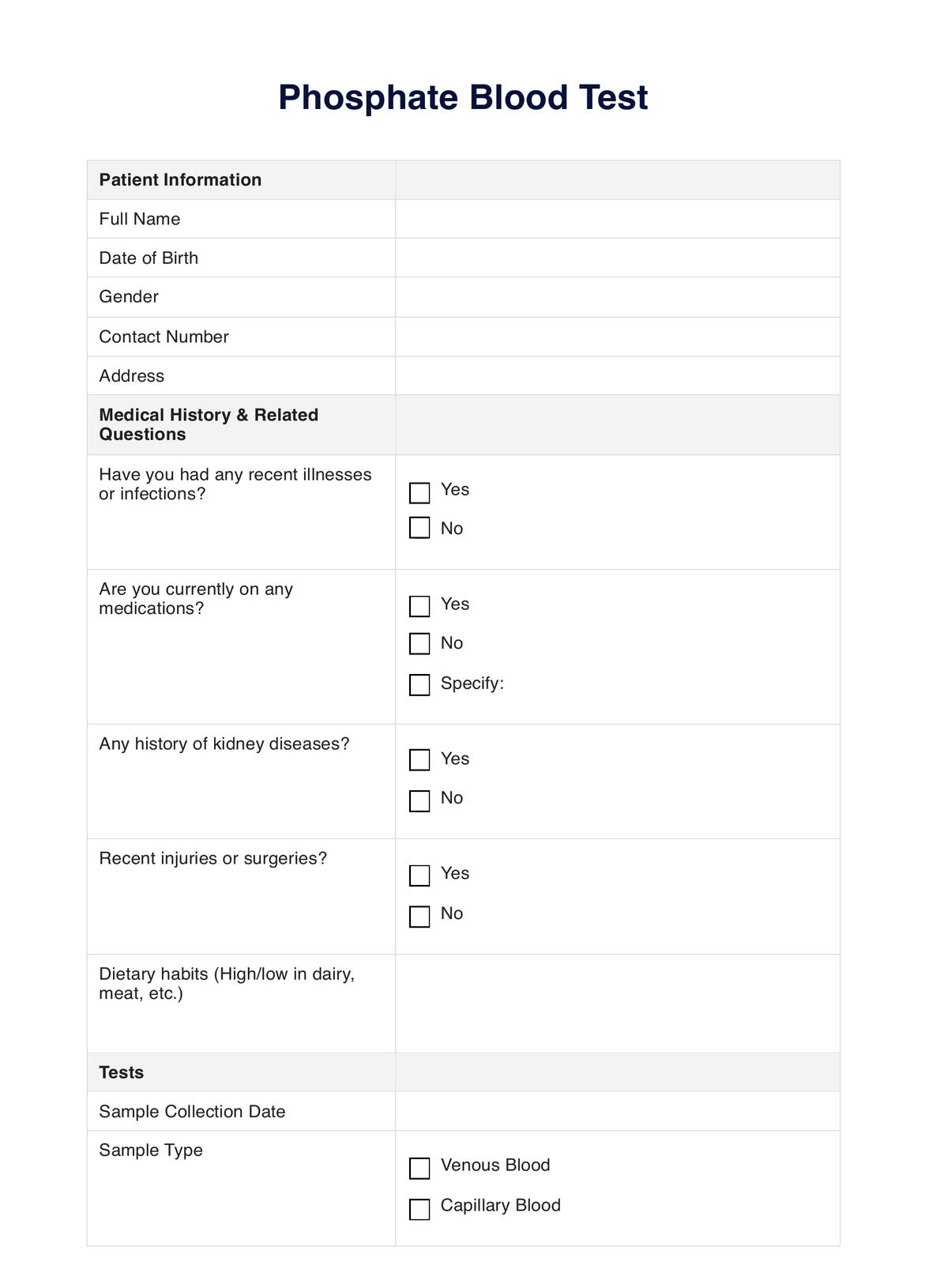The Carepatron app offers comprehensive tracking, easy access to patient history, and the ability to share information directly with patients, making it ideal for monitoring biochemical markers like phosphate levels.

Phosphate Blood
Discover Carepatron, your next-gen phosphate blood level monitoring solution. Seamless, secure, and smart healthcare at your fingertips!
Use Template
Phosphate Blood Template
Commonly asked questions
Absolutely, Carepatron stores all patient data, including past test results, which can be accessed anytime for comparison and progress tracking.
Yes, Carepatron prioritizes data security, ensuring all patient information is encrypted and stored following strict privacy regulations.
EHR and practice management software
Get started for free
*No credit card required
Free
$0/usd
Unlimited clients
Telehealth
1GB of storage
Client portal text
Automated billing and online payments











